MUST READ: Nanaia’s Super-Narrative
WHETHER NANAIA MAHUTA followed the conflict-of-interest rules set out in The Cabinet Manual hardly matters. A dangerous political narrative is forming around the appointment of, and awarding of contracts to, Mahuta’s whanau in circumstances that, at the very least, raise serious questions about this Government’s political judgement. Enlarging this narrative is the growing public perception that the mainstream news media is refusing to cover a story that would, in other circumstances, have attracted intense journalistic interest. The conflation of these two, highly damaging narratives with the even more negative narrative of “co-governance” – has left the Labour Government in an extremely exposed and vulnerable position.
The Government’s failure to adequately prepare the New Zealand public for what Labour clearly regards as the inevitability of co-governance hasn’t helped. The party did not campaign on the issue, and kept He Puapua, the controversial “road-map” to full implementation of the United Nations Declaration on the Rights of Indigenous Peoples – i.e. co-governance – by 2040, under wraps. Similarly unheralded was the Government’s determination to establish a separate Māori Health Authority. And the application of co-governance principles to Mahuta’s deeply unpopular “Three Waters” project has done nothing to allay public fears that the country is being changed, in fundamental ways, without the electorate’s consent.
The apparent failure of the mainstream news media to follow up on the story is being attributed to the extraordinary conditions attached to the Public Interest Journalism Fund administered by New Zealand On Air. In essence, these conditions require media outlets in receipt of the Fund’s largesse to subscribe in advance to a highly contentious series of propositions concerning the Treaty of Waitangi – most particularly to the Waitangi Tribunal’s claim the Māori never ceded sovereignty to the British Crown, and that this “fact” requires the Fund’s recipients to accept and support the “partnership” model of Crown-Māori relations. The fear expressed by independent journalists is that the net effect of these conditions will be unquestioning mainstream media support for co-governance.
Since the widespread assumption among Pakeha New Zealanders is that co-governance and representative democracy are fundamentally incompatible, Labour’s willingness to be presented as co-governance’s friend runs the risk of being cast as democracy’s enemy.
Of even greater concern is the inevitability of this anti-democratic characterisation being extended to an ever-increasing fraction of the Māori population. Statements from Māori leaders appearing to discount the importance of, or even disparage, the principles of democracy have done little to slow this process. Neither have the intemperate statements of the former National Party Minister for Treaty Settlements, Chris Finlayson. His comment to the online magazine E-Tangata, describing those opposed to co-governance as “the KKK brigade”, merely reinforces the widespread public perception that the slightest public opposition to the proposed changes will bring down accusations of racism upon the opponent’s head.
The problem with this willingness to indulge in ad hominem attacks on people holding genuine reservations about the Government’s proposals is that more and more of them will decide that they might as well be hung for a sheep as a lamb, and embrace the very racism of which they stand accused. In this context, the revelations that some members of a Māori Minister of the Crown’s whanau have been the recipients of Government funds, and appointed to roles not unrelated to the furtherance of the Minister’s policies, will be taken as confirmation that all is not as it should be in Aotearoa-New Zealand.
What began as an anti-co-governance narrative, and then merged with an anti-mainstream news media narrative, risks joining with a much older and more deeply entrenched narrative concerning the entire Treaty settlement process. This is the narrative that identifies the primary beneficiaries of Treaty settlements as a collection of Crown-assembled tribal elites, along with their legal and commercial advisers. Over the past thirty years these “Neo-Tribal Capitalists” have been accused of investing hundreds-of-millions of taxpayer dollars in what amount to private tribal corporations, over which the intended recipients of these funds – hapu and whanau – exercise only the most indirect authority and receive only the most meagre of rewards.
The result could very easily be the emergence of what might be called a “super-narrative” in which all the negatives of co-governance, media capture, and Neo-Tribal Capitalism are rolled into one big story about the deliberate corruption of New Zealand democracy. The guilty parties would be an unholy alliance of Pakeha and Māori elites determined to keep public money flowing upwards into protected private hands. In this super-narrative, the structures set forth in He Puapua to secure tino rangatiratanga, will actually ensure the exclusion of the vast majority of New Zealanders from the key locations of power. The only positive consequence of which will be a common struggle for political and economic equality in which non-elite Māori and Pakeha will have every incentive to involve themselves.
The painful irony of this super-narrative scenario is that Labour will have positioned itself as its cause – not its remedy. Rather than repeating in the Twenty-First Century the fruitful political alliance between the Pakeha working-class and the victims/survivors of the deals done between the Crown and the Māori aristocracy in the Nineteenth and Twentieth, Labour will be seen to have facilitated the creation of a Treaty Partnership that not only undermines democracy, but also exacerbates the inequality between Māori and Pakeha, Pakeha and Pakeha, Māori and Māori.
What lies ahead, as the institutions of co-governance take shape, is the coming together of two very privileged birds of a feather: the Pakeha professionals and managers who have taken command of the society and economy created by Neoliberalism, and the Māori professionals and managers created to produce and operate the cultural and economic machinery of Neo-Tribal Capitalism.
This, ultimately, will be the spectre that arises out of the controversy swirling around Nanaia Mahuta. The spectre of the worst of both the Pakeha and the Māori worlds. Worlds in which the powerful trample all over the weak. Where tradition constrains the free exploration of ideas and techniques. And where the petty advantages of separation are elevated above the liberating effects of unity. Where “Aotearoa” creates two peoples out of one.

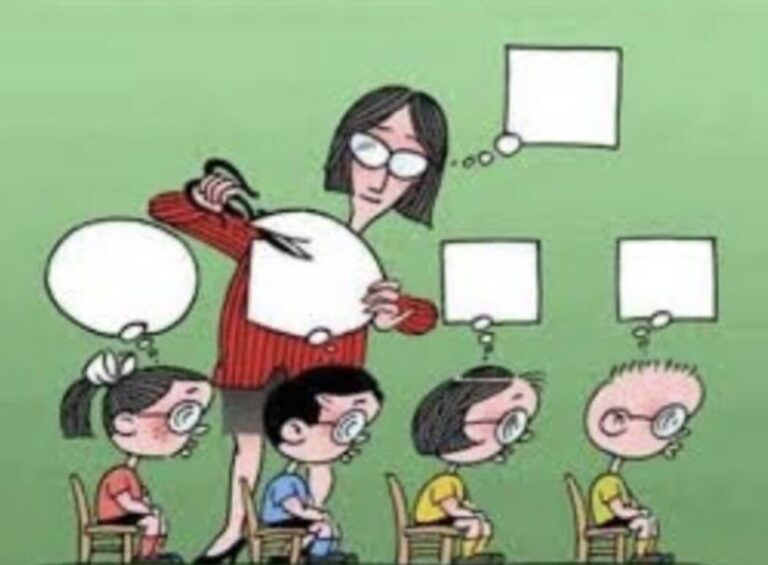
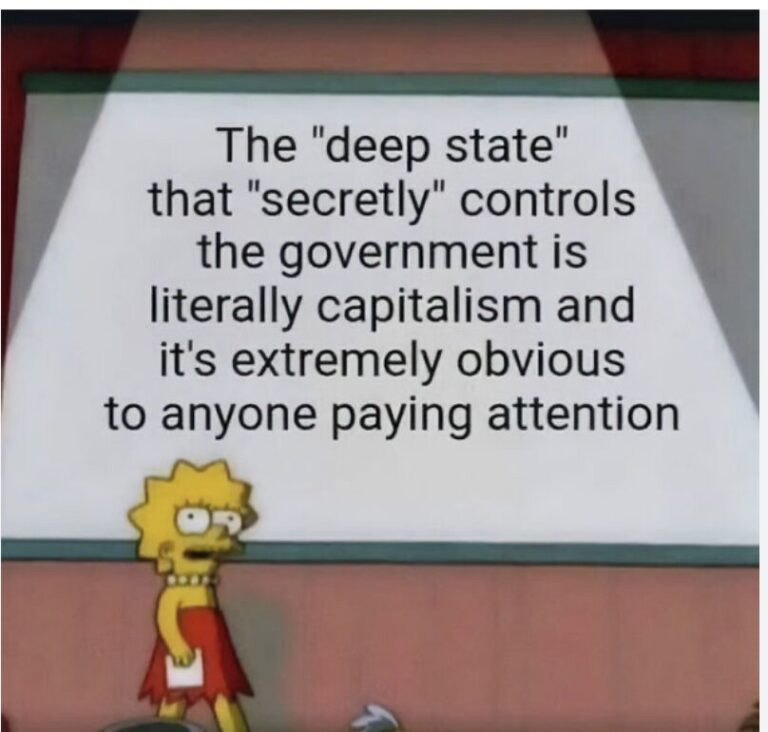
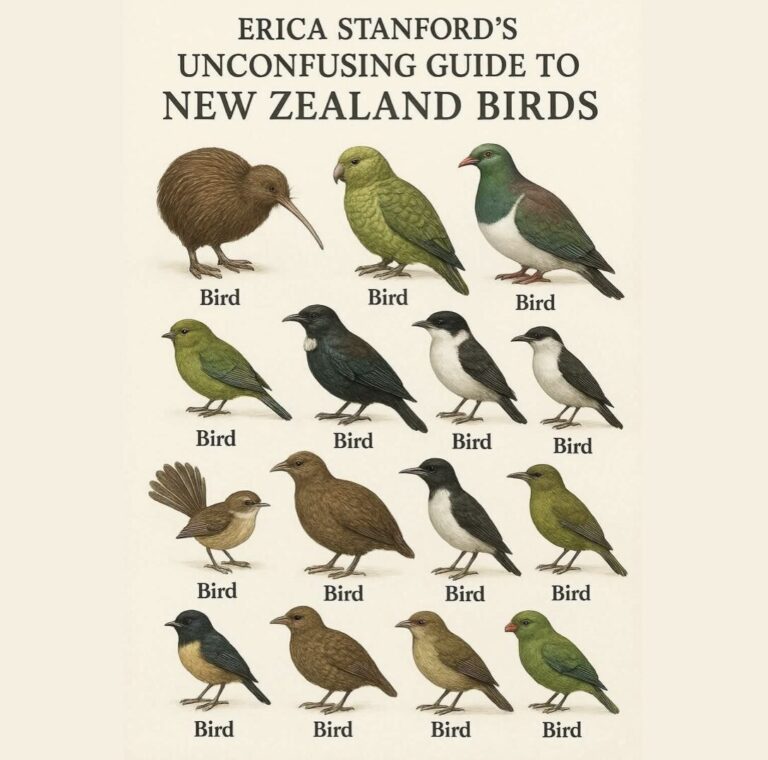
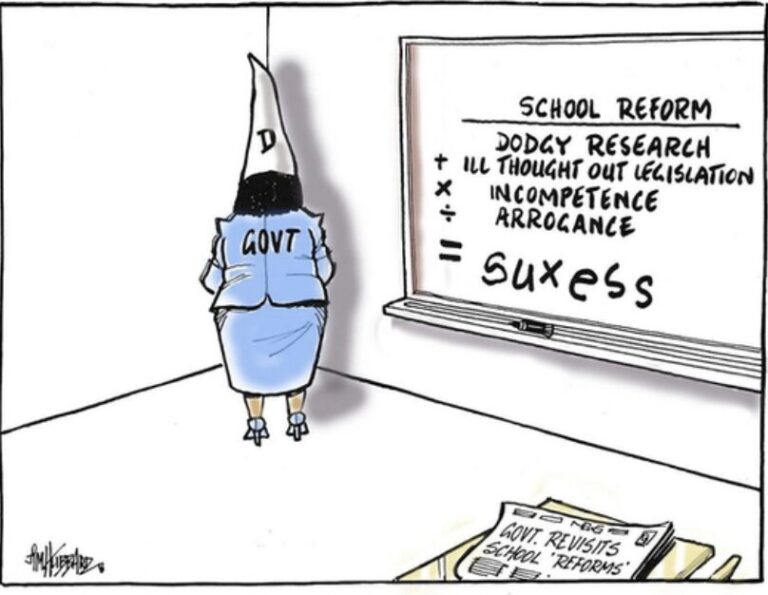

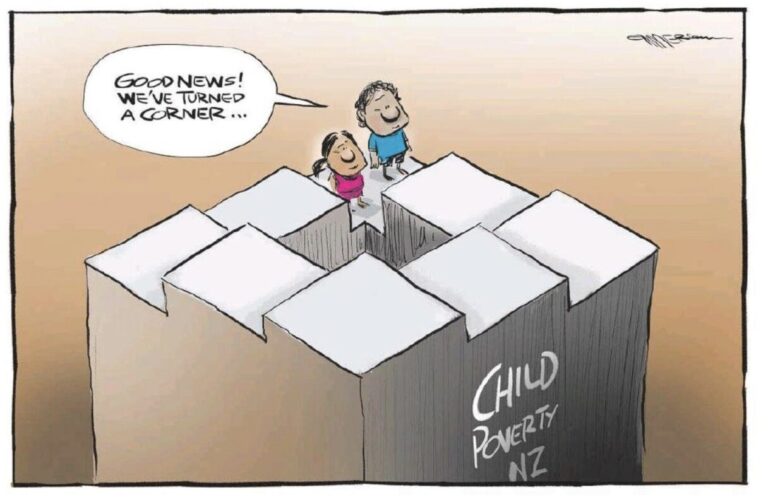
Wow, thank you very very much Chris,
for putting into words, so succinctly and exactly, many of my thoughts or incoherent ramblings.
As for “people holding genuine reservations about the Government’s proposals is that more and more of them will decide that they might as well be hung for a sheep as a lamb, and embrace the very racism of which they stand accused.”
Yes that is definitely a thing.
Being accused of being a racist, whether in person or indirectly via media, eg Finlayson, opens the door to considering whether one is racist or not, and if not then is ‘not being racist actually racist?’ type mess-up.
Finlayson definitely played the man not the ball, and the hus short sentences were not any good argument for his case.
I think he even said something as weak and rediculous as Trudeau’s ‘because its 2015’ as a relevant point.
Exceptional, bang-on … though obviously deeply upsetting for the authoritarian users & abusers among the Pakeha Professional Middle Class … self-interested moral frauds that they are.
Chris, I think we are at that point already TBH.
“Labour will be seen to have facilitated the creation of a Treaty Partnership that not only undermines democracy, but also exacerbates the inequality between Māori and Pakeha, Pakeha and Pakeha, Māori and Māori”
I am seeing this on a daily basis, division between pakeha elite and non elite, 100% pakeha and Pakeha with a drop of Maori blood, urban Maori versus tribal Maori, right voting Maori to left voting Maori.
NZ is a CF of epic proportions. I love the Queen and have always enjoyed the Monarchy but I do think NZ needs a total reset. At HMs demise we need to become a republic with our own democratically and thoroughly discussed and presented constitution.
No more treaty of Waitangi or past grievances. Start as we mean to carry on as one people moving forward together. No one person more special than any other but with compassion and support for those who need it.
Yes, absolutely.
Can’t see it fantail. Give up all our cultural background and cut mental ties with tupuna? No way.
And about a consitution – if you went to the touring discussion called the Constitution Conversation you would have an appreciation of how destructive that would seem to the old white guys who have had a wide door to the media for many decades; their private admissions are that they may not be great but they are better than Maori. There is no way they want to have a fair constitution not weighted in their favour.
Also a Republic would soon be as tawdry as the minds of these old guys. I admire the Queen and how Prince Charles has managed to retain his commitment to his role and country despite the difficulty of being forced into a marriage that was not of his choosing and which went downward as time went on. The Royal Family have remained people of worth not ruined by their position and money and we would be lucky to find people of their standing to replace them. At one time Brierley was very popular!
1st Paragraph Mr Trotter includes:
“A dangerous political narrative is forming around the appointment of, and awarding of contracts to, Mahuta’s whanau in circumstances that, at the very least, raise serious questions about this Government’s political judgement.”
My very first thought? All politicians do this, so what’s new? What’s the big deal here?
I bet everyone commenting could think of many shifty deals (especially Jonky) so why all
the drama.
Please someone tell me it’s NOT because the cuzzies are involved.
Just sayin’
Given the Minister had nothing to do with the decision, there is nothing to report. The Herald did cover it, but just as part of its mission to promote unfounded stories against their political opposition (the winter of discontent in 2000 and the infamous editorial of 2005 demanding voters prevent a Labour-Green coalition) in support of Kiwi, not Iwi.
The purpose of the Whaleoil/Kiwblog + Taxpayer Union/The Platform narrative is pretty obvious.
The idea of partnership with Maori in management of land and water assets (post government annexation of iwi lands) and delivery of services to Maori via providers such as the Maori Health Authority (National set up whanau ora) as co-governance and some sort of threat to democracy is just the dancing cossacks of our time, the tour divide and the Kiwi not Iwi wrapped into one.
It is the great dividing line between the past and future generations.
Those who saw the F and S legislation as key to winning in 2005, or promising no CGT or wealth taxation to winning in 2020 know their own generation very well. But not those of the future and these articles will not age well.
Fabulous post SPC and telling it how it actually is. Plenty of chicken lickens on this site.
Not quite so nothing to see here SPC.
I would like to see the paper trail re the contracting process. How was the contract advertised? How many applied for the contract and what were their qualifications? What made Mahutas relatives the most suitable candidates?
Show us the information and it will end the speculation.
Mahuta also made a claim that Crown Law had advised her on co governance and partnership, but is not releasing the info. Guess it will come out in the court case. Will try and post a link
Bravo Chris Trotter. A clear eyed warning of what is at risk
Thanks so much for writing this Chris. This is a brilliant article
I also recommend the Platform. For those who don’t know of it google the platform NZ.
Yes it’s what’s been missing from the media in NZ.
Martyn contributes there too.
Did the Platform replace Whailoil?
It certainly looks like it, particularly given Bob likes it.
Reoliberalism
Very good Chris
This is probably the most important issue NZ faces in the longer term. At least among the things that can be addressed within these shores. And a delicate issue it is. It is courageous to take it on .
D J S
Nanaia Mahuta following the conflict-of-interest rules hardly matters, rules and guidelines actually mean nothing?
What matters are dangerous political narratives, highly damaging narratives and negative narratives. And they could come about because the media won’t make non-stories into stories – they won’t create the narrative.
Easy to sort things out on learning from the Mahuta situation. Remove the possibility of the narratives being formulated let alone told.
How about new conflict-of-interest rules? It’s quite simple really, would bring a purity to the landscape and leave no scope for political mischief makers.
How about: No family, parents, children, siblings, cousins, aunties and uncles, whoever, of any Minister, should work for any Ministry or for any company contracted to do work for the Government. Reality doesn’t matter it’s image, the created perceptions. Of course such an insane move would only move the target for those disenchanted that they’re not in power but they would enjoy a victory while turning everyone into losers.
Well said. The secrecy under which the lengthy he Puapua policies were hatched, their being assiduously concealed from DPM lawyer Winston Peters, the subsequent attempts by Trevor Mallard and co to trespass and ban Peters from the Parliamentary precinct, inevitability lend credence to other concerns about Ardern’s relationship with this country’s political dynamics. The current DPM, Kelvin Davis, appearing to be yet another member of the ‘ white people are wicked colonialists’ brigade just like the Green co-leader, Davidson, is also disturbing, and especially in view of Davis’s previous job as a primary school teacher.
The jurisprudence of the Treaty of Waitangi, the treaty pertaining to this country, has been addressed by legal minds for decades, and suddenly, a group of unknown conspirators, under the aegis of the parliamentary Labour Party, have produced a radical interpretation of the Treaty, and amongst other things creating the co-governance myth which undermines the working principles of democracy and the democratic rights of all non-Maori New Zealanders.
Looks like the beneficiaries of this attempted major constitutional upheaval helped to engineer it, and the touchy-feely waffle produced spasmodically by the scribblers at Stuff, appears intellectually crippled and morally bankrupt.
It was revealing maybe a few years ago now, Jack Tame asked Kelvin Davis, something like ‘ did the colonists bring anything good with them?’
Davis’ jaw dropped and mouth stayed open in stunned surprise… It was obvious he’d never been asked the question before, or even thought about it.
After a minute, he said ‘we’re not here to talk about that’
And carried on blaming colonisation for everything….
Alan M What you’re recounting here is totally appalling. It is appalling that anyone as seemingly imbued with ignorance and racial prejudice as Davis is is a party leader, or even in Parliament at all. We probably all know or know of top notch Maori achievers, in spite of what Kelvin Davis implies, and he and Davidson’s very selective cherry-picking of our history is worse than socially mischievous.
Those supposed‘ two’ privileged birds of a feather are I’d argue one and the same. They may differentiate themselves on the basis of race but they’re the same. Likewise, the poor and downtrodden here in NZ are of different ethnic backgrounds but all are poor.
As for the narrative about corruption, nepotism and the elite trying once again to enrich themselves being established. It’s already out there
But who is over represented in the poor group Yeti and who is over represented in prisons and in mortality and morbidity numbers and all the other areas measuring well being and how did this come to being?
Yes historical conditions ensured Maori were disproportionately in poverty that legacy has a very long tail. However if you look past race and at the lines of individual whanau and families, are outcomes for working class Maori significantly different than for working class Pakeha?
Either way does this change anything about the effects of elite interests or is elitist society made better when the elite look like us?
A trick is pulled in the US where there is no difference between the bottom 50% socio-economically of Black and White. The vast majority of racial difference is the top 10%. As the top 10% of whites are far wealthier than the top 10% of Blacks.
This shifts the racial average and is used to propagate an ‘oppression’ narrative that is leveraged to benefit the cultural elites. Does this also hold true for NZ when you account for socio-economic background in addition to race?
That’s right Tui, the disparities are wheeled out as caused by oppression. Convieniant for the narrative and justification for all sorts of separatist initiatives but proper analysis is ingnored. The prison population, for example, have many things in common – fatherlessness, school truancy, lack of academic and trade qualifications, drug and alcohol abuse and so on. Once these risk factors are properly accounted for the race factor (largely?) disappears. Similar analysis of a whole range of life success measures shows similar results – teach your kids some good ethics and commitment and responsibility and things will generally work out for them regardless of their race. Teaching them that their faults and failures are all someone else’s fault will only make things worse.
Yep, what do think it does to someone, telling them their whole life that they’ve bee ripped off?
Check out African American economist Tom Sowell’s analysis of African American’s experience regarding the very same stats – mirror image of Tangata Whenua. His conclusion as to cause? Social Welfare. If you look at all the stats you mention prior to the welfare “reforms” that began in the 1960s (DPB being a prime example) and as of today for Maori, it is a hard argument to refute.
“…the net effect of these conditions HAS BEEN & CONTINUES TO BE unquestioning mainstream media support for co-governance.”
Fixed that for you
You forgot to mention jamming Apartheid Maori Council seats down the voters throats.
Looks like The Platform has proven its value in a single article!
Your language does show off your racist side, it really does.
So being critical of a policy that separates people on the basis of race is racist?
Really!
(The word ‘apartheid’ means separateness in Afrikaans)
It’s not separatism ffs, it’s co governance. It’s you drawing race into it, race baiting one would call it.
Co governance based on what exactly. Oh that’s right – race.
Great essay Chris, you’ve summed up the current issues and the likely consequences nicely.
“Labour’s willingness to be presented as co-governance’s friend runs the risk of being cast as democracy’s enemy.”
Not so much a risk as a reality. You don’t hide your undemocratic intentions from the people, or talk about “redefining democracy” or vote for it’s demise (Rotorua Council) or put people’s petition rights in the bin without it becoming obvious that you are, indeed, democracy’s enemy.
Ministers husband financial beneficiary of taxpayer money through “consultancy” to another ministry, read, murky and very grey. Then the minister family becomes even bigger beneficiaries through the same route. In most countries that would be front and centre headline and I doubt the minister would last much more than a month, nor the government come next election. Most countries that is except North Korea and sundry other corrupt wastelands and now it appears, Aotearoa!
I too wondered why something as scandalous as this blatant conflict of interest was being ignored by the mainstream media but then you mention why public broadcasting money only appears to come for free and it makes perfect sense! I mean light weights like RNZ would never cover it, too lost in deep Te Reo pronunciations or Stuff.co (too obsessed about righting the so called wrongs of the ex TVNZ host), but I’m disappointed about some of the others.
You are also right, Labour were elected on policy they campaigned on, (something they’ve been especially poor delivering on), but not co-governance that they have ever so quietly toiling away on in the shadows. Some may think, sneaking around, so proud are they of their achievements they don’t want to share it with the rest of us. Can’t think why!
Sorry to say but co governance was not a policy Labour ran on and they know damn well if they had they’d been shown the door. And Labour seriously looks like it can’t be trusted anymore than any other government with hidden agendas, especially one so serious as this.
This country is far from perfect but this little taste of co-governance for me has left me cold. Especially with the media’s blessing!
Sadly the National Party has a leader who is too gutless to scratch his own arse.
So let’s compare shall we, National never campaigned on selling state assets, ran a referendum, policy was voted down but went a head anyway because Key said he had a mandate because his party was voted in.
Yet this was not a problem?